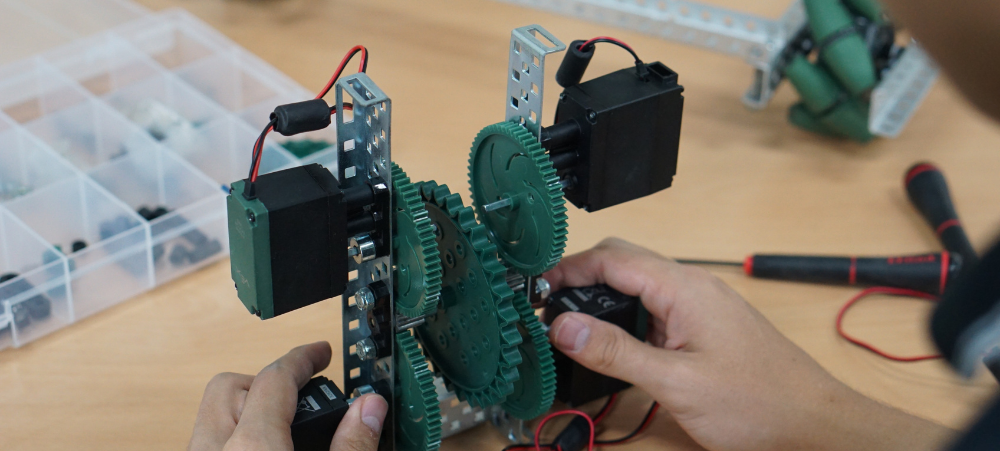At Wingu Academy we encourage our Wingulians to develop good study habits and get organised from the word go. According to daniel-wong.com here are some of the top tips to get organised, focused and avoid falling behind.
1. Develop a routine
Consistency is the key to student success. So write down your general weekly schedule and create a routine.
Include things like when you’ll do your homework, when you’ll review the things you’ve learned, when you’ll exercise, and so on.
It’s not possible to stick to a routine 100% of the time, but at least set up the framework to keep you focused and on track.
2. Set rules for yourself
Set some very specific rules for yourself. These could be things like “complete all projects and assignments at least two days before they are due” or “start studying for tests at least one week in advance”.
Review your rules once a month and adjust them if necessary.
3. Work on one task at a time; don’t multitask
One of the most important organisational tips for students is to focus on one task at a time.
Multitasking seems like a good idea because you can pretend that you’re working twice as hard.
We all get bored of the tasks we’re working on, so jumping about seems more fun.
The problem is that it doesn’t result in the best outcomes.
Here’s what I recommend: Take a scrap piece of paper and write down the task you’re working on right now, e.g. Math assignment, questions 1 to 5.
Put that scrap piece of paper on your study table, to serve as a reminder for you to stay focused on the task at hand.
4. Keep one notebook and one binder for each subject
Take all your notes for one subject in one notebook. When you run out of space, start a new notebook. Label each notebook clearly, e.g. History Notebook 1, History Notebook 2. This will make it easy for you to find the information you need in the future.
Don’t take notes on loose sheets of paper you may lose. Also, don’t just use only one notebook, in which you take notes across all your different subjects.
5. Do five minutes of daily planning each day
Before you start doing your homework or studying for a test, look at your planner first. Take note of all upcoming deadlines, and think about your schedule for the rest of the day.
Then you can decide what specific tasks to work on for the day. Doing daily planning will ensure that you’re always working on the most important tasks, and that you don’t leave anything out.
6. Block out time in your schedule for the things that matter most
Blocking out time in your schedule is a critical time management strategy for students.
If you don’t do this, other things which are less important will fill your schedule.
7. Break down big tasks into smaller tasks
Breaking down big tasks and projects makes them seem less overwhelming and more manageable.
Doing this also makes it clearer what your specific next step is, so you’ll be less likely to procrastinate on your assignments.
8. If a task takes two minutes or less to do, do it immediately
The “two-minute rule” was popularised by productivity expert David Allen. When you follow this rule, small tasks don’t pile up and become overwhelming.
Things like texting a friend, sending your classmate some information via email, or asking your parents to sign a consent form are all quick tasks that take less than two minutes to complete.
When you do these tasks immediately, you’ll feel a sense of achievement too.
9. Create a conducive environment at home for studying
You need to have the right environment to work. You need all the necessary materials, stationery, paper and study tools. You also need a suitable table and lamp.
And if you want to be productive, you definitely shouldn’t study on your bed!
10. Before you start work, eliminate all distractions
Take a moment and think about the distractions you typically face when you’re trying to study. Common ones include text messages, notifications on your phone, social media and YouTube.
11. Every day, review all the new information you learned in school earlier that day
A quick review of the key concepts should only take you about 20 minutes. Doing this helps to ensure understanding, so you stay on top of the material.
If you really can’t do this review on the same day, do it the following day while the information is still fresh in your mind.
12. Keep an ongoing list of the questions you have about the class material
As you read your notes and the textbook, keep a list of the things you don’t understand and the questions you have. As soon as you’re able to, ask your teachers about the items on your list.
If you do this consistently, you won’t need to spend so much time studying for tests and exams, because you already understand the information.
These are only some of Daniel Wong’s tips. He has lots more in his article: https://www.daniel-wong.com/2017/04/10/students-get-organised-for-school/
It may seem overwhelming, but adopting one new habit at a time will take you further then you know until you’re comfortable to tackle the next one. Remember that your journey as a student is about progress and not perfection.
- Supporting Wingulians During Exam Season: How SSAs Ensure Academic Success and Well-Being - October 3, 2025
- Academic Accountability Partnership - September 25, 2025
- Future-Proof Learning for Future-Ready Leaders - September 19, 2025





